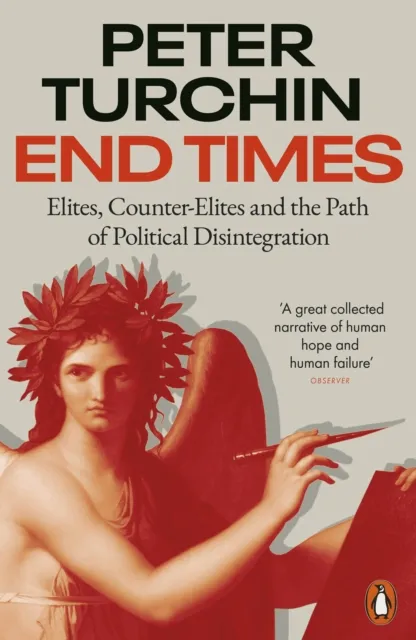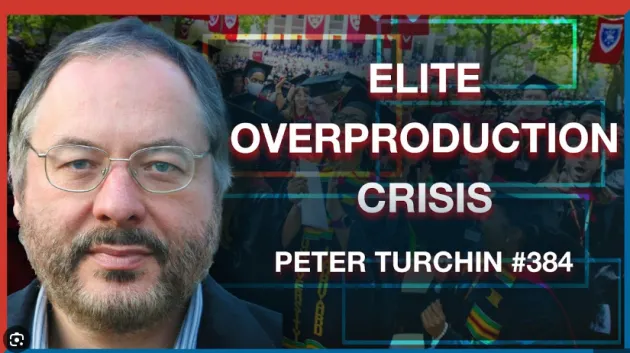End Times: Elites, Counter-Elites and the Path of Political Disintegration by Peter Turchin
Published on 8th January 2024
Book review - End Times: Elites, Counter-Elites and the Path of Political Disintegration by Peter Turchin
By some estimates, 49% of the world’s adult population is due to vote in elections in 2024 and what better way to begin the year than with Turchin’s brilliant book about how much trouble some of these same societies are in.
Turchin, a scholar of cliodynamics (broadly, the belief that history can be a science) argues that his analysis of numerous states, dating back centuries, shows that some contemporary societies (for example, the United States) are entering a revolutionary period.
This revolutionary period has the potential to end in civil war and state collapse. Over the course of the book (and numerous examples), Turchin identifies four key factors which cause the instability which can lead to such periods of crisis, namely, “popular immiseration … elite overproduction … failing fiscal health and weakened legitimacy of the state … and geopolitical factors”.

Of these, Turchin considers elite overproduction to be the key one and it is worth focusing on briefly.
Essentially, elite overproduction refers to how an increasingly large group of people wish to enter the elite (whether that be the economic, bureaucratic, coercive or ideological elite) but cannot. Turchin compares it to a game of musical chairs.
Using 1950s America as an example, if there were ten ‘elite’ chairs available and I had a bachelor’s degree, this meant that it was only myself and twelve or thirteen others competing for those ten chairs (as less than 15% of people had a bachelor’s degree). By the mid-1960s, I would be competing with thirty other graduates for the ten positions. By 1990, fifty graduates would be vying for the spots. In order to give themselves a better chance, some people obtain further education, a master’s degree or a doctorate.
However, as these same qualifications become more commonplace, the struggle to enter the elite remains as difficult as ever. This leaves those who fail both indebted and frustrated. The result, according to Turchin, is the creation of counter-elites. Indeed, he argues, “overproduction of youth with advanced degrees has been the most significant factor in driving societal upheavals, from the Revolutions of 1848 to the Arab Spring of 2011”.

While trained historians and adherents to the great man theory of history may baulk at some of Turchin’s claims, he does have a fairly impressive track record in foreseeing political turbulence.
For example, in a paper in 2010, he suggested that there would be an increase in political instability in the United States and Western Europe in the period from 2010-2020, something which did indeed come to pass.
Without getting into too much detail, it’s important to point out that Turchin does not think the fate of the contemporary United States to destroy itself is completely determined. Rather, he cites several historical examples of societies which have entered revolutionary periods but have managed to step back from the brink.
Specifically, he cites the British and Russian empires in the 1800s and the United States in the New Deal era as examples of states which have made fundamental changes to avoid catastrophe.
End Times is brimming with ideas and thought-provoking claims which I can only skim the surface of here. It is engaging, relatively short and written in accessible language. It is an essential read for anyone who wants to try and understand the modern world.
Submitted by Peadar in HQ.
Watch the YouTube video below.